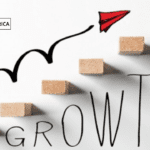Ismael Belkhayat is the co-founder and CEO of Chari, an e-commerce company that he founded with his wife Sophia Alj. Chari helps small retailers in French-speaking Africa procure inventory for their stores and get it delivered for free while benefiting from payment facilities.
It is a one-stop shop for traditional proximity stores, allowing them to order any consumer goods they sell and get them delivered for free while benefiting from financial services.
Ismael is an experienced startup founder with a demonstrated history of working in the internet industry. A data-driven, strong business development professional who graduated from Cornell University and was a former BCG consultant.
About Ismael Belkhayat
Ismael Belkhayat grew up in Morocco, where he had his early education before moving to Europe for his undergrad and then to the US for his grad studies. Ismael Belkhayat began his professional career in 2009 at the Paris office of the Boston Consulting Group (BCG).
He left BCG in 2013 to return to his country and launch a web incubator in Morocco (wib.co). He later founded VotreChauffeur, a ride-hailing startup operating in Casablanca and a few other Moroccan cities.
The startup quickly became a household name in the country and, after about four years, was acquired for an undisclosed amount by Avis Car Rental. Belkhayat continues to serve as a board member in the company.
One thing Ismael Belkhayat prides himself in is the ability to quickly focus on the next important thing rather than wallow in the glory or loss of the past. While still running his first startup, he founded another one, Sarouty, a marketplace that facilitates real estate deals in Morocco. Sarouty helps people to discover, buy or rent land and houses across Morocco.

Ismael Belkhayat’s core mantra is to grow as fast as possible and overwhelm the competition between the first 2 years in business. So, like his first business, Sarouty quickly became the leading real estate platform in the country. It partnered with PropertyFinder Group, a Dubai-based multinational proptech startup, to scale its tech and expand to more cities. Due to the potential of the business, PropertyFinder opted for acquisition instead of partnership and named Sarouty as its Moroccan operation. Belkhayat then exited to act in the capacity of board member.
Tell us a bit about yourself
My name is Ismael Belkhayat. I am from Morocco. I’m born and raised in Rabat. I left after high school, I went first to Europe for my undergrad and then to the US for my grad studies. And then I worked for BCG as a strategy consultant, first in Paris, then in Casablanca, Morocco. And about 10 years ago now, I became a tech entrepreneur. So I am what we call a repeat founder. And my last company is called Chari.
You’ve founded multiple successful startups. So what drove you to leave your consulting jobs and venture into entrepreneurship?
You know when you are 26 or 27 years old, you keep asking yourself existential questions about life, about happiness, about your future. And sometimes you just wake up and you realize that you need to do introspection, which means knowing who you are, knowing what you love in life, knowing what makes you happy.
And myself as a consultant, I was realizing that I was giving advice to others and that it was great, but it wasn’t making me really happy because reality is I wanted to be myself on the ground and myself building things.
So instead of giving advice to others, I wanted to give advice to myself and start becoming an entrepreneur. This is what made me realize that I needed this adrenaline given by building things that people want.
What inspired you to start Chari and why focus on B2B, more especially retailers?
As everyone in Morocco, I go for my groceries to the next door, independent, no-name grocery store. And every day, when I need something for my place, I go out and it’s only two away, and I ask for what I want.
And I realized that this shop is part of my family, my culture, and my daily life. I also realized that this shop was being threatened by modern trade and the big supermarkets. And if nothing is done, he will end up being replaced by the big chains, such as Carrefour that we have in Morocco.
So my feeling was in order to make sure to save this population of independent shops we need to help them digitize it. I realized that this shop has a lot of pain points and my idea was to provide him with some mobile apps in order to improve his daily life and make him more competitive.
What are some of the biggest challenges you’ve faced in the ecommerce space, more especially in Morocco?
My biggest challenge is to train and educate the shopkeeper to start using technology. When we started, we gave amazing mobile apps with amazing user experiences, with amazing technology using the last libraries. And we quickly realized that these shopkeepers were not tech savvy at all.
Read Also: How Sylvia Omina Otsieno is Using Banana Fiber to Make Jewelry
And what they wanted from us was only a phone number and a WhatsApp number to call us and send us voice messages asking us for whatever they needed for their store. So e-commerce for them was a way just to contact us, have someone on the line and ask for what they wanted.

And it was very difficult for us to explain to them that it was easier to use the mobile app. To order on the mobile app, they could be tracking whatever they have ordered. That they could see the total price of what they needed.
But again, you don’t change someone overnight. It’s a matter of time. And the first step was to have the shopkeepers use our apps as a catalog to see our products, and then progressively they started getting used to it until they ended up ordering directly on the app.
Can you share with me more about Chari’s journey and your vision for expansion?
Yes. Today we have two verticals. We have one vertical called B2B e-commerce and another vertical called Fintech apps. On the B2B e-commerce, I have to say that it’s very difficult to expand because there is no advantage to being in many countries.
The clients are not necessarily the same. The suppliers are not necessarily the same. So when you speak with a multinational based in a country, it’s very difficult to negotiate better terms or better pricing by telling them, I am also in another country.
Because usually your single point of contact is the head of the country and it has nothing to do with another country. So that’s for B2B e-commerce. I think we should do one country and do it well, make it profitable and become the clear leader.
However, when it comes to fintech, I think it’s easier to expand. Why? Again, because you can use one single back office in your home country and use it to expand to other countries. And the way you acquire users on the fintech vertical is through marketing, is through training videos.
So you can do that remotely without having people on the ground. When it comes to e-commerce, you need people on the ground. So what we’ve done is we focused e-commerce on Morocco. However, we have expanded the fintech play to nine Francophone countries in Africa.
Chari’s operational strategy seems unique. So can you explain how it works and the reasoning behind it?
Yes, so the way it works is very easy to understand. Chari is what we call a digital wholesaler. Our job is to meet with the suppliers, the big multinationals, the local manufacturers, and to negotiate with them payment terms and distribution modules.
So we buy the goods from the suppliers. We stock them in our warehouses. We have a team of pick and packers and a team of delivery boys. And when we receive the orders from the clients, we deliver the goods in less than 24 hours. We are a logistics company that brings technology on top of it to optimize the routings and make sure to bring the goods to the shopkeepers at the best price.
You have been starting and running startups for some years. What lessons have you learned from your previous startups that you are applying to Chari?
Before Chari I started the two startups. One was a ride hailing app (VotreChauffeur.ma) and ride hailing app means also logistics. You have to handle a lot of cars. You have to handle a lot of clients and you have to learn how to do logistics. So all of my knowledge and expertise coming from the ride heading has been transferred to the daily life of Chari, which is also logistics.

My second startup is a property marketplace (Sarouty.ma) in which you have to make the demand meet with the offer. And again, I learned a lot about marketplaces and how to make sure that the demand is proportional to the offer.
So nobody gets disappointed about your service. And I use this knowledge of making sure that the demand goes proportionally to the offer and vice versa. I applied it to Chari. So Chari is a mix between marketplace and logistics. So it’s a mix between my two previous startups into this startup.
Trust is crucial in ecommerce. How does Chari ensure trust and reliability in its transactions, especially in a cash-based economy like yours?
Yes, it’s a very good question. Trust is very important in our communities. And the reason we gain this trust is by sending people on the ground to meet with the shopkeepers. To train the shopkeepers, to educate the shopkeepers, to explain to the shopkeepers who we are.
See Also: 22 Morocco Beach Resorts to Stay During Your Holiday
And the way we gain trust is also by delivering them the goods on time, is by selling them the goods at the right price, is by showing them that we are reliable suppliers. And still, even with that, they don’t pay us in advance. They do pay us cash on delivery, which means that they order online, but they don’t pay online.
They wait for the goods to be delivered to pay us. And the reason for this is trust, but it’s also working capital. These people don’t have cash to advance. So they wait for the goods to arrive to pay for them.
When it comes to funding, especially in Africa, it’s a very big challenge, your funding. So can you share how you have been able to raise funds and how it has impacted your expansion plan for Chari?
When you are a founder that is very passionate about his job, that you mastered your industry, that you come from the country in which you want to be an entrepreneur. It becomes easier for you to convince investors to trust you.
Why? Because you basically explain to them that you are able to overcome the challenges that your country is having. You are able to show them that you’ve understood the problems of the local population, that you are building something people want.
Raising funds, founding is a matter of your ability of being passionate about what you do, of sharing this passion with investors and explaining to them what is the problem that you are trying to solve.
Can you elaborate how you are leveraging technology to streamline your delivery process?
Yes, so in our very case, technology is everywhere. We use technology to receive the orders from the clients. We use technology to prepare the orders. It’s called a warehouse management system, which is a tool and an app that allows us to know where the goods are being placed in our warehouse.
When the goods are expiring, we do what we call FIFO, first expired, first out using our technology. We also use what we call a transport management system, which is an app to optimize the routing of the deliveries.
Also we use what we call business intelligence apps to analyze ourselves, to do predictions on ourselves, to better buy our stocks, though technology is everywhere. We also have fintech apps. All of that is based on technology.
Chari is operating in three or four countries. As you know every country has their own regulatory challenges. How does Chari navigate these obstacles?

It’s a very good point. So Chari has offices in three countries, Morocco, Tunisia and Ivory Coast. And I agree with you. The legal framework is totally different. Some habits are different and it’s very difficult to solve a problem in one country and think that you can solve the same problem in another country.
This is why we need the people on the ground, we need people from the country and we need to have a local presence. That being said, we try to mutualize as much as possible, people in our home office especially for tech development and the client satisfaction and client experience.
What is the experience like working and building Chari with your wife, Sophia, as your co-founder?
It’s a very good question. Myy wife and I are very complimentary. She is an engineer and I am a business person. She worked for McKinsey. I worked for BCG. She studied in Canada in Montreal. I studied in Europe So she is very detail oriented. I am very strategy oriented.
So we realized that we were complimentary. When I get pissed off, she is happy. When she gets pissed off, I am happy. We realized that we could help each other and we put in place some rules such as we don’t speak about work at home, we don’t speak about home at work. We tried to have our own responsibilities, I don’t get into what she does, she doesn’t get into what I do. And so far, it’s been working.
Can you share with me how you have been able to build systems and processes in your organizations, especially in Chari for smooth running of the business?
As I told you, I used to be a consultant at BCG, my co-founder used to be a consultant at McKinsey. Both of us worked on go-to-market strategies for FMCG players. And we saw how to process streams. We understood all of that. And what we did is we hired a team of passionate developers with whom we transformed these processes into technology. So now we have workflows that are able to cover all our business from the purchasing till the sales and including obviously accounting and business intelligence.
What do you see as the future trends shaping the e-commerce landscape here in Africa? And how is Chari positioned to capitalize on these trends?
I think B2C e-commerce is suffering. We’ve seen Jumia having some struggle. And this is due to many factors, including the lack of addresses, the lack of infrastructure, the lack of the seriousness of the clients.
Some of them order but are not at their place or sometimes they order and don’t accept the goods. The lack of digital payments. So it’s very expensive to run a B2C e-commerce. However, B2B e-commerce is more affordable because your clients are professional people. They are always at the same place and they need your goods.
So my take on this is in order to do B2C e-commerce because at the end of the day, the end users need e-commerce, you should do what I call B2B2C, which means that you should be using local shopkeepers as intermediaries between you and the end users.
And we’ve seen that working, even Jumia today uses some shopkeepers to deliver the goods and then the end users go and get the goods from the shops. And this is also my ambition, which is working with the shops to end up covering the end users.
How do you envision Chari becoming one of the most inspiring brands in Africa?

Our ambition is to be a leading player in Africa. We are solving problems for Africans. And the way we envision becoming a strong brand is by also touching the end users. Because so far we are only working with B2B clients. And we will start offering on top of our e-commerce services, fintech services for end users and professionals. And so far so good because our apps are loved by our users. We think that we can really offer unique services when it comes to fintech.
What advice would you give to aspiring entrepreneurs, especially those looking to enter the tech industry?
I mean, one main piece of advice is that you have nothing to lose by trying a business. The worst case scenario is you will fail, but you will learn a lot. And the best case scenario is you will succeed and it’s going to be pure joy. So in both cases, you end up succeeding. And even when you fail, you learn and you keep trying until you succeed. So I encourage everyone to at least try and see the joys of being an entrepreneur.
Where can we learn more about you and your brand?
Click to read part two of this interview with Ismael Belkhayat.
Watch the interview here.
















